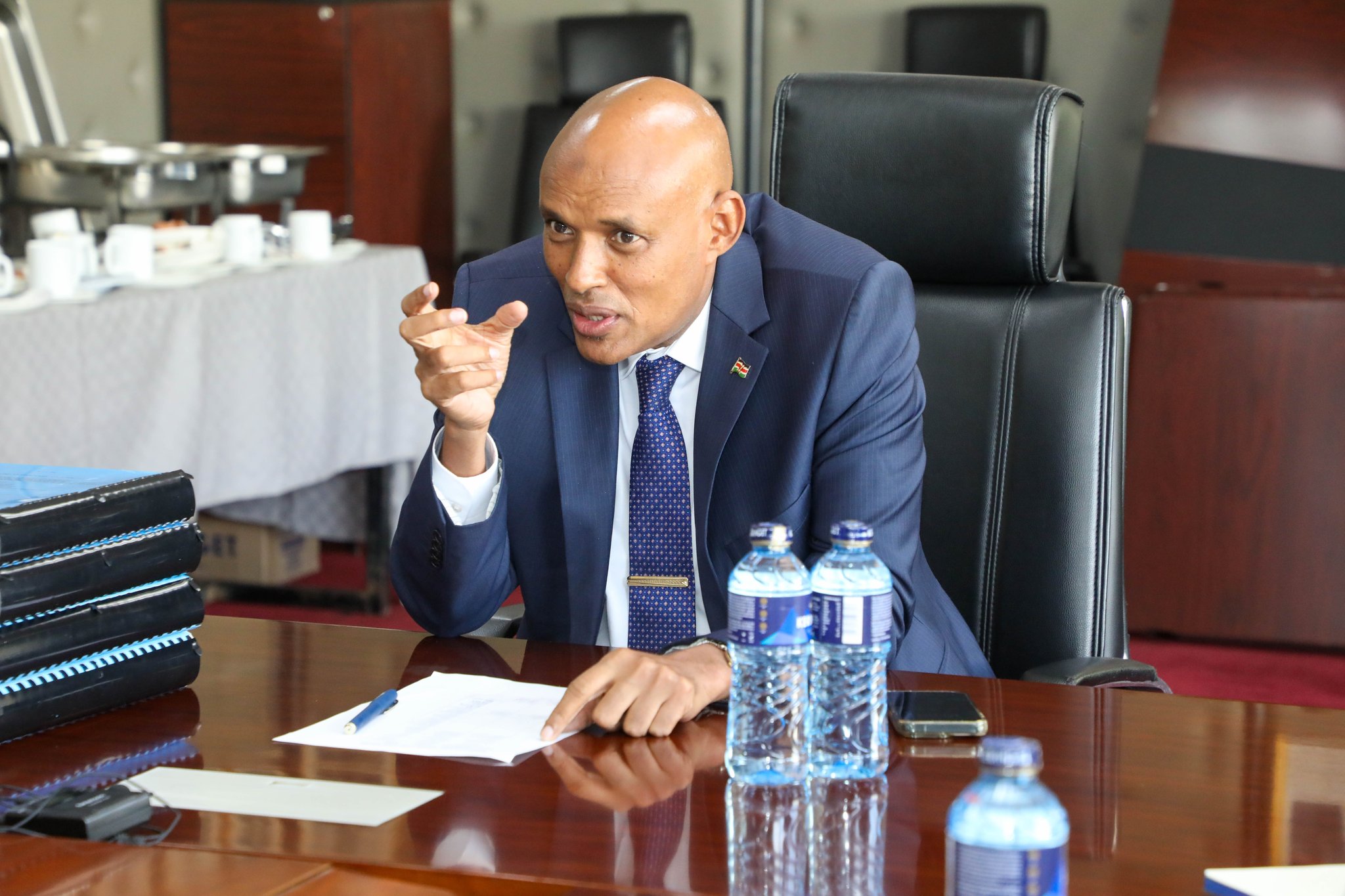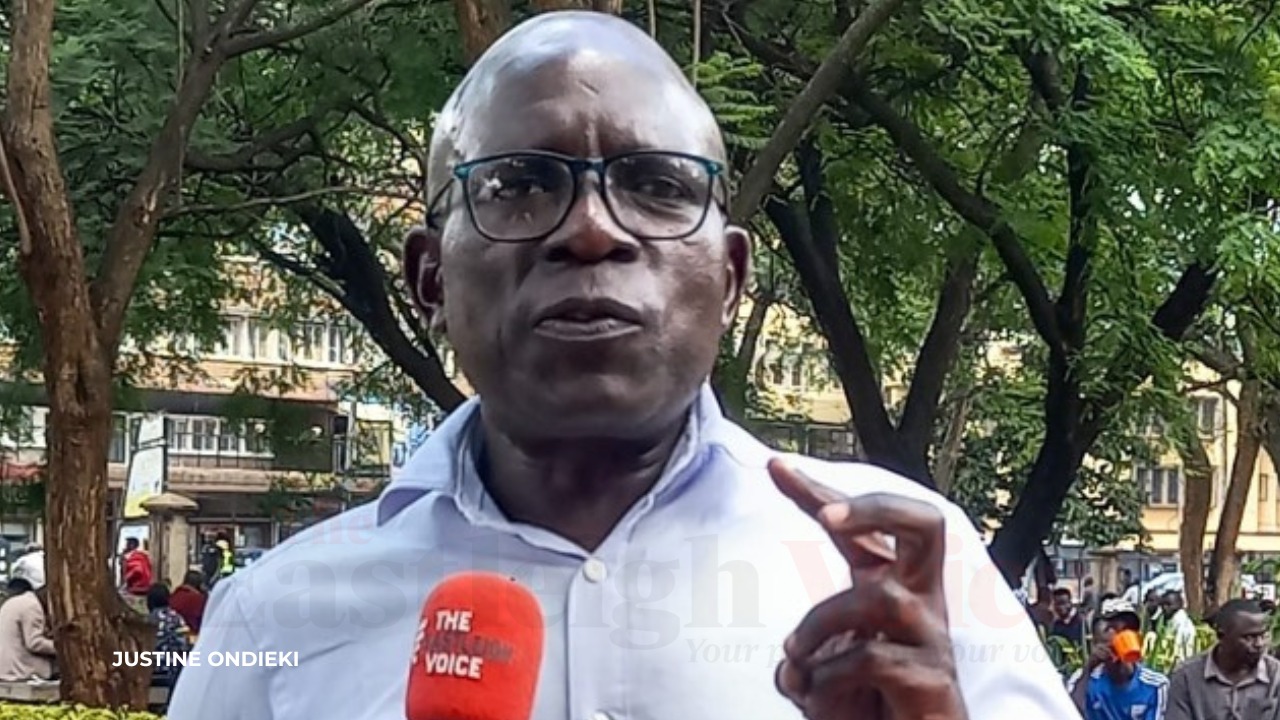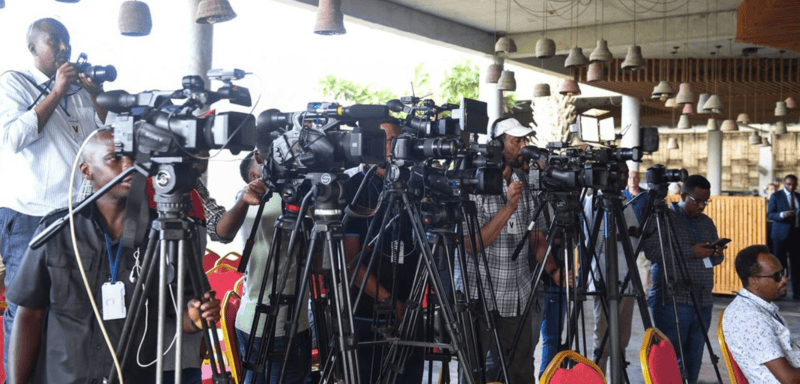How police officers misuse their authority to spy on innocent Kenyans

In one such case, a senior police officer based at Vigilance House abused his power and spied on his estranged wife.
The reports on how security agencies allegedly deployed unauthorised mobile phone surveillance to track protesters, human rights defenders and persons perceived to have financed the June anti-Finance Bill 2024 protests highlighted fears of governmental overreach and the possible misuse of technology.
Multiple reports claimed that the surveillance helped those involved in tracking persons of interest reach their targets with ease, in situations that led to the abduction, torture, and alleged killing of demonstrators.
More To Read
- UN Rights Chief raises alarm over abductions, enforced disappearances in Uganda ahead of elections
- Wajir MCAs demand answers over rising abductions after two men vanish
- Kenyan activists Bob Njagi, Nicholas Oyoo to sue Uganda in regional court over abduction
- Court told six KWS rangers abducted missing fisherman Brian Odhiambo
- Matiang’i raises alarm over Kenya’s image as calls grow for answers on missing Kenyans
- 35 Ugandans file landmark petition over alleged cross-border abduction by Kenyan forces
A local media exposé dubbed "How police use phones to track, capture suspects", further claimed that state agencies and telecom companies had been accessing call data and location information to abduct suspects without proper authorisation, adding fury to the already simmering anger and outrage by Kenyans, human rights organisations as well as the US Embassy.
The Director of Criminal Investigations Amin Mohamed said the accusations were unfounded and that any data obtained from service providers follows legal protocols.
"On the issue of police conspiring with mobile service providers, we don't do that completely. If we are interested in getting information from the service providers, we do so through lawful means. We go to the courts, swear affidavits, and serve that order to the service providers. It is only after we get the orders that we have the service providers to work with us," he said.
The DCI was referring to what the law mandates officers to do, as it prohibits officers from tracking citizens' phones when the subject is not under an official probe as recorded under an occurrence book.
This is, however, not always the case as evidence shows that rogue officers have on numerous occasions, even without what may be a state-sanctioned surveillance operation, monitored the movements and interactions of Kenyans sometimes for financial gain and other times for personal gain.
Tracking estranged spouse
In one such case, a senior police officer based at Vigilance House abused his power and spied on his estranged wife in a case that will see him face criminal charges for threatening those that he assumed to be engaging her closely.
According to court documents seen by The Eastleigh Voice, the officer, a Senior Superintendent of Police (SSP), had married his estranged wife, a civil servant, under the Luo customary law since November 2010 until around February 2020 when the woman decided to leave the union following misunderstandings between them arising from domestic issues.
Despite several attempts by her former husband to have her back, the woman never returned to him.
Court documents show that the officer then began sending her threatening messages through her phone, and extended the same to her close associates, a situation that took a turn for the worse when he started tracking her calls.
The officer further accused his former wife's male colleagues of having an affair with her and complained to the headquarters of the parastatal she worked for in Nairobi, accusing her of infidelity.
Disturbed by the turn of events, the woman reported the matter at Embakasi Police Station but she was turned away. The officers argued that the suspect was too senior for them to investigate.
Later she opted to seek the assistance of her parents but the officer followed her there and physically assaulted her, a matter that was reported at Migori Police Station via OB 45/12/01/2021 but, again, no action was taken.
In the meantime, the situation was worsening at her workplace, with the senior officer continuing to threaten her colleagues who would be seen communicating with her by phone.
With nowhere else to go, she reported the matter to the Independent Policing and Oversight Authority (IPOA), but still no help came.
As a last resort, she turned to the Inspector General's office and the Internal Affairs Unit (IAU) at KCB Towers for help.
There, she was invited to give evidence and support her complaint against the senior officer to which she obliged and provided detailed information of her tribulations in the hands of her former husband and his accomplices and also produced several witnesses including her former workmates at the parastatal to support her case.
A perusal of several documents tabled in court by the Attorney General's office established that IAU, which by then was headed by current DCI Director Mohamed Amin, conducted a thorough probe on the conduct of the suspect and, on completion, forwarded the relevant investigating file to Inspector General for direction.
Upon reviewing the findings from IAU, the Inspector General of Police directed that the consent of the Director of Public Prosecutions (DPP) be sought before the officer could be charged.
In a letter referenced ODPP/CAM/1/2194(TY), the ODPP approved that the senior officer be charged with three counts of criminal offences, abuse of office contrary to Section 36 of the Penal Code, threatening to kill contrary to Section 223(1) of the Penal Code and assault, causing actual bodily harm.
Petition to block prosecution
However, before the matter could proceed, the suspect filed a petition E036/2023 at the Human Rights and Constitutional division of the High Court at Milimani to block his prosecution, citing the inaction by Embakasi, Migori police stations and IPOA as proof of his innocence.
He told the court that the accusations levelled against him were meant to damage his stellar reputation and character by exposing him to ridicule.
The matter was heard in court last year and was in October this year dismissed by Justice Lawrence Mugambi on grounds that the officer had not provided adequate evidence to show his ex-wife's malice in her case.
"To curtail the investigation at this stage in the light of the material displayed and considering the gravity of the allegations might impede the truth and result in injustice," the judge ruled.
The ruling now allows the IAU to arrest and prosecute the officer for the three criminal charges.
In its findings tabled in court, the unit found that the petitioner had been using junior officers from the DCI to unlawfully track the whereabouts of his estranged wife and her associates.
This was revealed by an analysis of the woman's phones by the DCI, which confirmed that the senior officer had used DCI officers to locate her movements.
The same was also corroborated by the witness statements of the officers who were approached by the senior officer to track the woman on his behalf between March and May 2021.
In his defence the officer has maintained that he sent threatening messages out of the "psychological torture and frustration" he was going through after "learning that his wife was having extramarital affairs with another man."
Infringing basic privacy rights
The case is evidence of the fact that, as IAU noted in its submissions, there was clear evidence that some DCI officers "are often being used by unscrupulous people to trample the rights of others, particularly on the infringement of basic privacy rights as enshrined under Article 31 of the Constitution."
In its letter to the IG, the unit recommended that he consider strict vetting of DCI officers assigned to the Criminal Intelligence Unit (CIU), now referred to as the Criminal Research and Intelligence Bureau (CRIB), and allocate locating gadgets to avoid their misuse.
It further recommended that disciplinary action be taken against the officers as the senior officer faces criminal culpability for his actions.
Top Stories Today












































